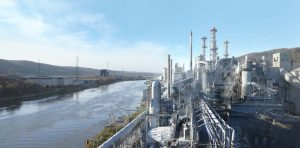
Foundation stone laid for new urea plant
Prime Minister Narendra Modi laid a foundation stone for a new ammonia-urea plant at Namrup in Assam on December 21st. The plant, to be constructed by the Assam Valley Fertiliser and Chemical Company Ltd (AVFCCL), will have a urea production capacity of 1.27 million t/a, and the project is scheduled for commissioning in 2030.






